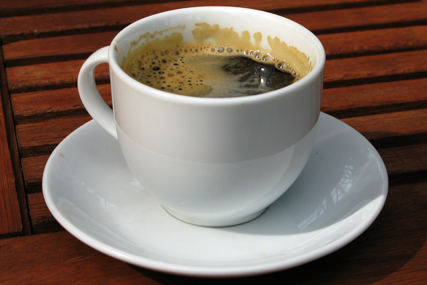
The research, undertaken by CSR analysts CleanAnalysis, scrutinised the sustainability credentials of three coffee chains, Caffe Nero, Starbucks and Costa Coffee, in areas like waste and recycling.
The report found that US giant, Starbucks, gave the most information but did not provide a UK breakdown in its .
Caffe Nero was found not to provide any CSR information, either on its website or within its corporate reports. CleanAnalysis also said that Caffe Nero denied its requests for CSR information.
The report found Costa Coffee, which is owned by Whitbread, fared better in its operations but also failed to reply to requests for information.
Costa Coffee is also regarded as the least sustainable of the trio according to a consumer survey conducted for the report, which covered only 102 respondents. Asked which brand they found was most sustainable, 50 people opted for Starbucks, 28 people selected Caffe Nero and 24 people said Costa Coffee.
In terms of the companies' carbon footprints, the report found that Starbucks does not report absolute figures for carbon dioxide emissions.
Instead it prefers to highlight a programme it runs linking farmers to carbon markets. Starbucks is also a supporter of Business for Innovative Climate and Energy Policy – a group that lobbies for stronger climate change legislation in the US.
Costa Coffee does not disclose specific data for its carbon footprint. Instead, its environmental data is reported as part of parent company, Whitbread, which also owns budet hotel chain Premier Inn and restaurants Beefeater and Brewers Fayre.
For the Whitbread group CO2 emissions increased in absolute terms by 6% in 2008/2009.
Caffe Nero does not disclose specific data.
Dan Ilett, senior analyst for CleanAnalysis, commenting on the report, said: "It is clear that Starbucks scores better than Costa and Caffe Nero, not because its operations are more sustainable (we don’t know this – we were unable to measure this due to a lack of of data and blurred lines around responsibility of sustainable operations), but because it has influenced consumers, tried harder with marketing and made some data on sustainability available to the public.
"It has clearly spent more money on this than the other two. Our report makes some clear recommendation of ways that the coffee industry can benchmark and report on its sustainability efforts in order to draw a much clearer link between brands and their achievements."
In reaction to the report, Starbucks' vice-president of marketing and category, UK & Ireland, Brian Waring, said the company was proud of its accomplishments in mitigating its environmental impact but recognised "we have some way to go".
Our responsibility begins in coffee growing communities, through our ground breaking work with Conservation International to ensure adherence to responsible farming practices so that natural habitats are protected, thereby reducing deforestation and carbon emissions.
"We are also working closely with our suppliers to develop more environmentally friendly packaging and we’re committed to serving 25% of our drinks in reusable cups by 2015.
Waring also pointed to reduced energy and water use in the new UK store design and set out four specific goals
- Achieving a 25% reduction in energy consumption by the end of 2010
- Deriving 50% of energy from renewable sources by the end of 2010
- Working to deliver green (LEED®) certification for new stores beginning later this year
- Serving 25% of our drinks in reusable cups by 2015.
Costa Coffee and Caffe Nero did not provide any comment at time of publication.


.jpg)


.jpg)